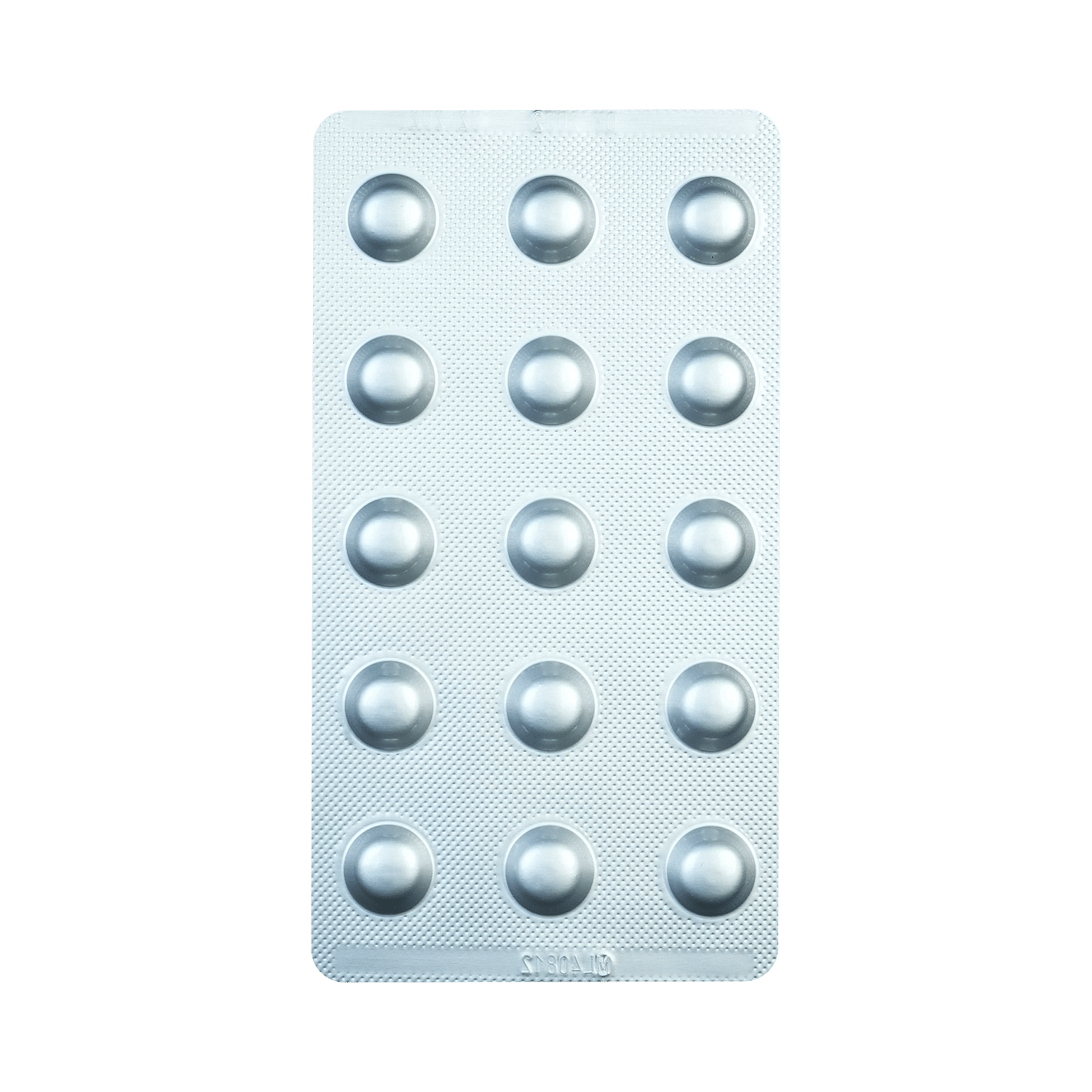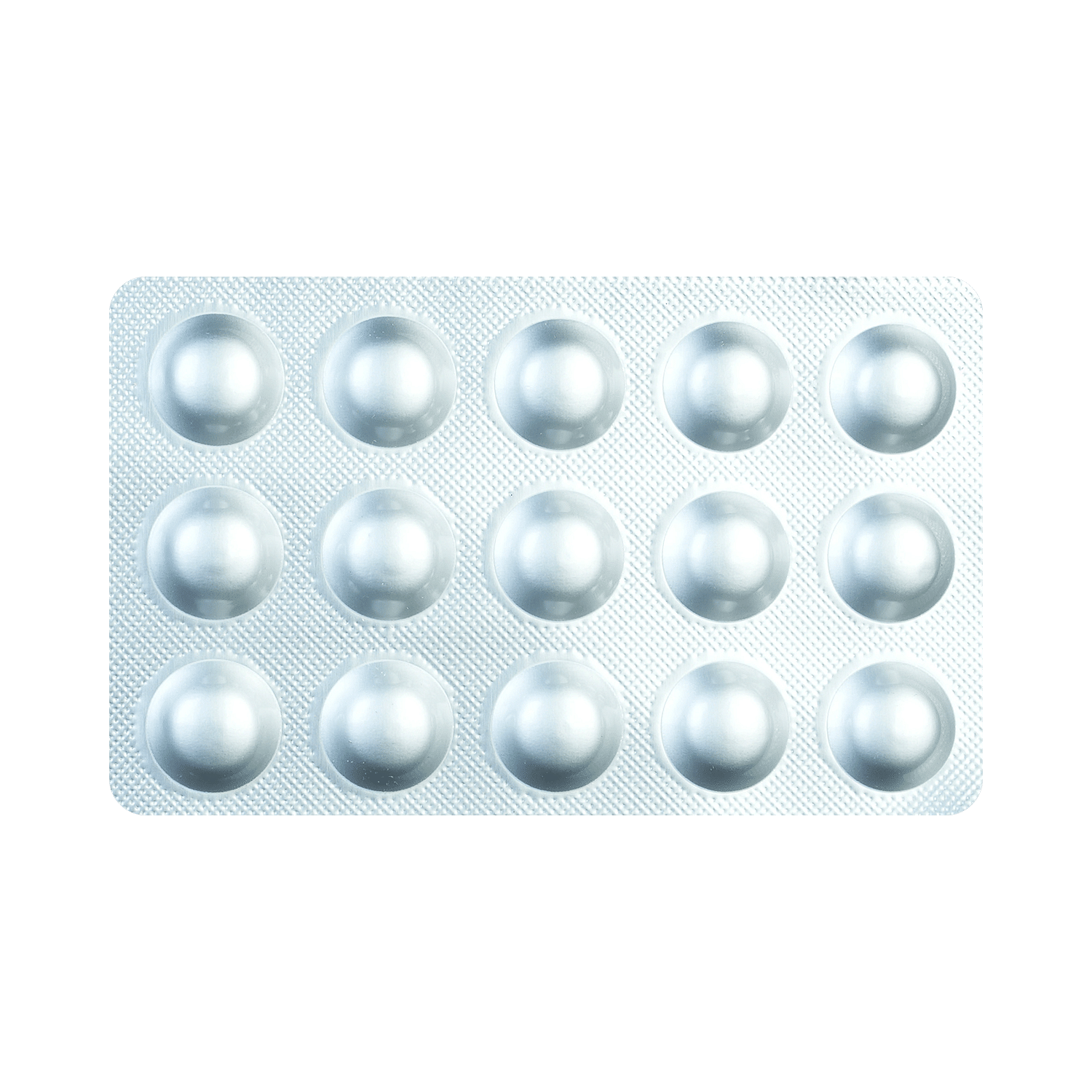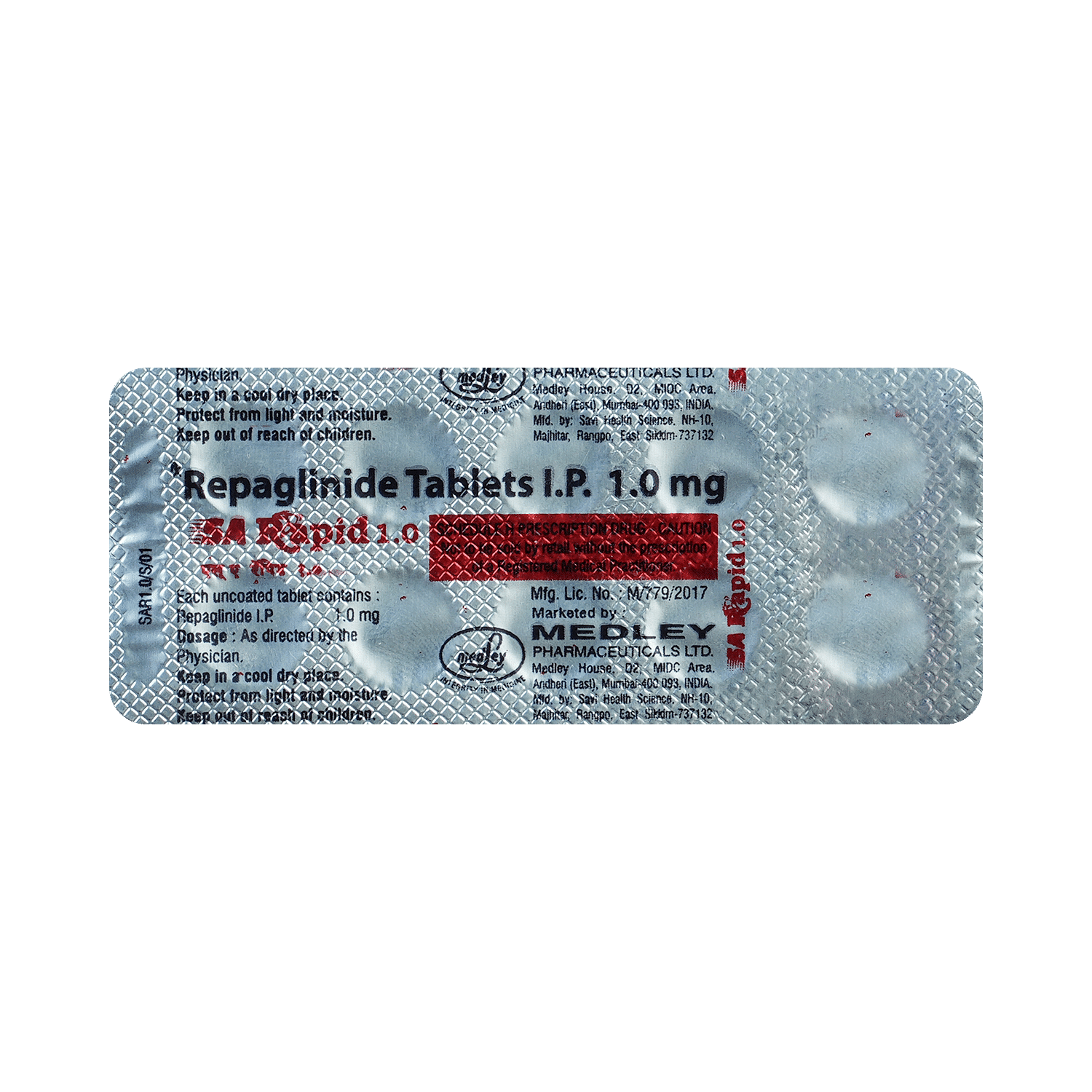
Renide 1mg Tablet
Manufacturer
Serwina Pharmaceuticals Private Limited
Salt Composition
Repaglinide (1mg)
Key Information
Short Description
Renide 1mg Tablet is used to lower blood sugar levels in adults with type 2 diabetes mellitus. It is usually prescribed along with other diabetes medicines to achieve adequate blood sugar control.
Dosage Form
Tablet
Introduction
Renide 1mg Tablet is normally prescribed when diet and exercise alone or other medicines have not been enough to control your blood sugar level. It works best when taken before meals. The dose will depend on your condition and blood sugar levels, but you should take it as advised by your doctor. Take Renide 1mg Tablet regularly, at the same time each day, to get the most benefit and you should not stop unless your doctor recommends it. It is controlling your blood sugar levels and helping to prevent serious complications in the future. It is important to stay on the diet and exercise program recommended by your doctor while taking this medicine. Your lifestyle plays a big part in controlling diabetes.
Directions for Use
Take this medicine in the dose and duration as advised by your doctor. Swallow it as a whole. Do not chew, crush, or break it. Renide 1mg Tablet is to be taken empty stomach.
Safety Information
Side Effects
The most common side effects of this medicine is hypoglycemia (low blood sugar levels). You can carry sugar or glucose candy to control low blood sugar levels. Other common side effects that may be seen while taking this medicine include abdominal pain, inflammation of sinus, joint pain, back pain, nausea, and diarrhea.
Alcohol Warning
It is unsafe to consume alcohol with Renide 1mg Tablet.
Breastfeeding Warning
Renide 1mg Tablet is probably unsafe to use during breastfeeding. Limited human data suggests that the drug may pass into the breastmilk and harm the baby.
Pregnancy Warning
Renide 1mg Tablet may be unsafe to use during pregnancy. Although there are limited studies in humans, animal studies have shown harmful effects on the developing baby. Your doctor will weigh the benefits and any potential risks before prescribing it to you. Please consult your doctor.
Interacting Medicines
Bezafibrate Fenofibrate Gemfibrozil Trimethoprim
How it works
Renide 1mg Tablet is an anti-diabetic medication. It increases the amount of insulin released by the pancreas which prevents blood glucose from rising very high after meals.
Quick Tips
Take Renide 1mg Tablet 15 to 30 minutes before a meal. You should continue to exercise regularly eat a healthy diet and take your other diabetes medicines along with Renide 1mg Tablet It may cause dizziness. Do not drive or do anything that requires mental focus until you know how Renide 1mg Tablet affects you. It may cause hypoglycemia (low blood sugar level) when used with other antidiabetic medicines, alcohol, or if you delay or miss a meal. Always carry some sugary food or fruit juice with you in case you experience hypoglycemic symptoms such as cold sweats, cool pale skin, tremor, and anxiety.
Related Medicines

Novonorm 1mg Tablet

Eurepa-1 Tablet

SA Rapid 1mg Tablet

Repa 1mg Tablet

Reglide 1mg Tablet

Repage 1mg Tablet

Glugrip 1mg Tablet

Lunch ON 1mg Tablet

Repide 1mg Tablet

Q Repa 1mg Tablet
Frequently asked questions
What is the onset of action for Renide 1mg Tablet?
Renide 1mg Tablet starts working approximately 30 minutes after administration, resulting in increased insulin levels and decreased blood glucose levels. The effect typically lasts for about 4 hours.
Is it safe to consume alcohol while taking Renide 1mg Tablet?
No, you should avoid consuming alcohol while taking Renide 1mg Tablet as it can interfere with its effectiveness. If you experience symptoms of low blood sugar, such as weakness, shakiness, cold sweat, cool pale skin, rapid heartbeat, tremors, extreme hunger, dizziness, headache, and anxiety, seek medical attention.
Can Renide 1mg Tablet be used in combination with other antidiabetic medications?
Yes, it can be taken with other antidiabetic drugs under the guidance of your doctor. However, since all these medications lower blood glucose levels, regular monitoring of blood sugar is recommended to prevent hypoglycemia.
Is breastfeeding safe while taking Renide 1mg Tablet?
No, breastfeeding should be avoided as Renide 1mg Tablet may pass into breast milk, potentially causing low blood glucose levels in the baby. Consult your doctor for advice on this matter.
Do I need to adjust clopidogrel dosage if I'm taking Renide 1mg Tablet?
You should inform your doctor and seek their guidance regarding the use of clopidogrel with Renide 1mg Tablet. If unavoidable, take 0.5 mg Renide 1mg Tablet before each meal, not exceeding a total daily dose of 4 mg. Monitor blood glucose levels more frequently.


